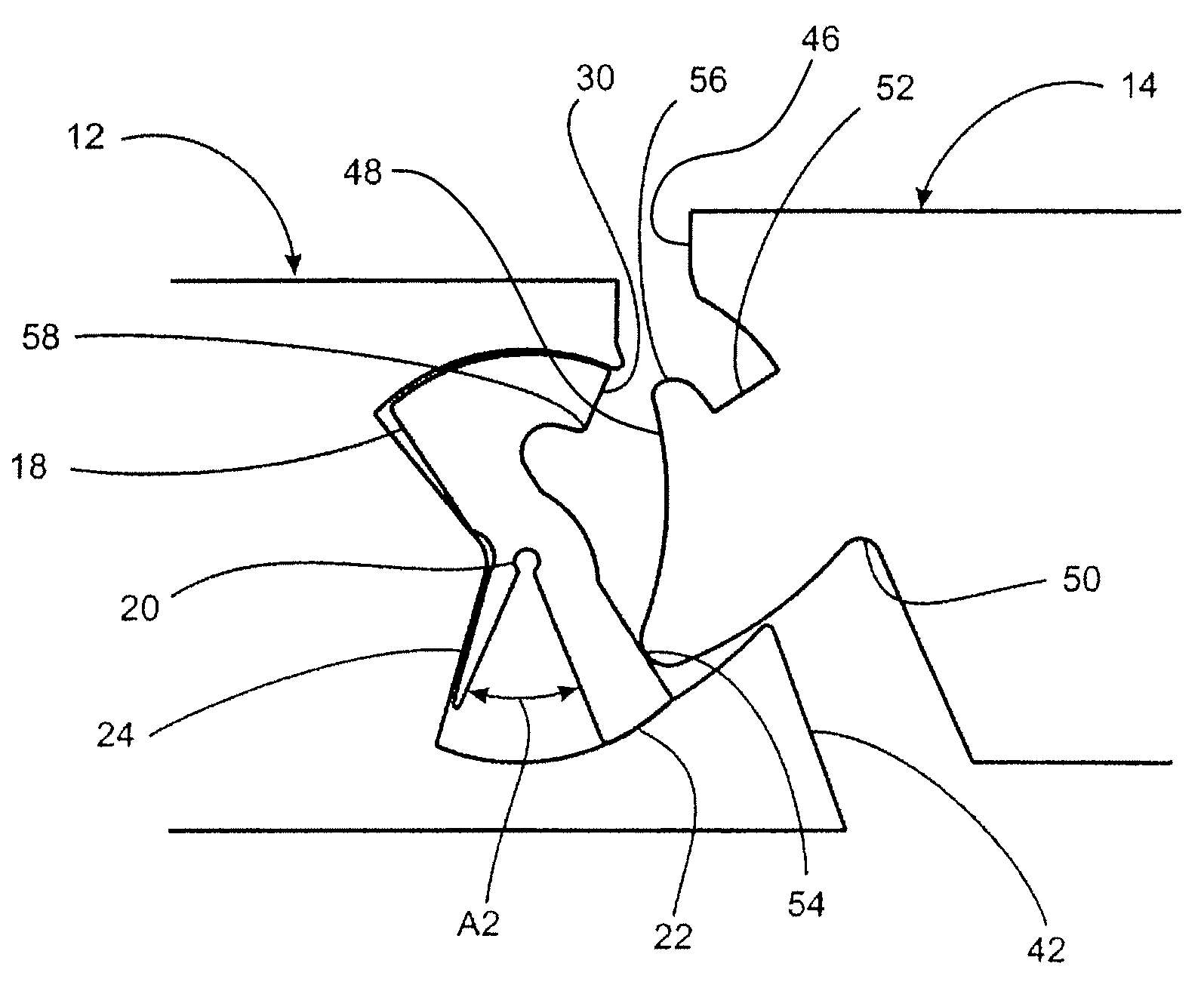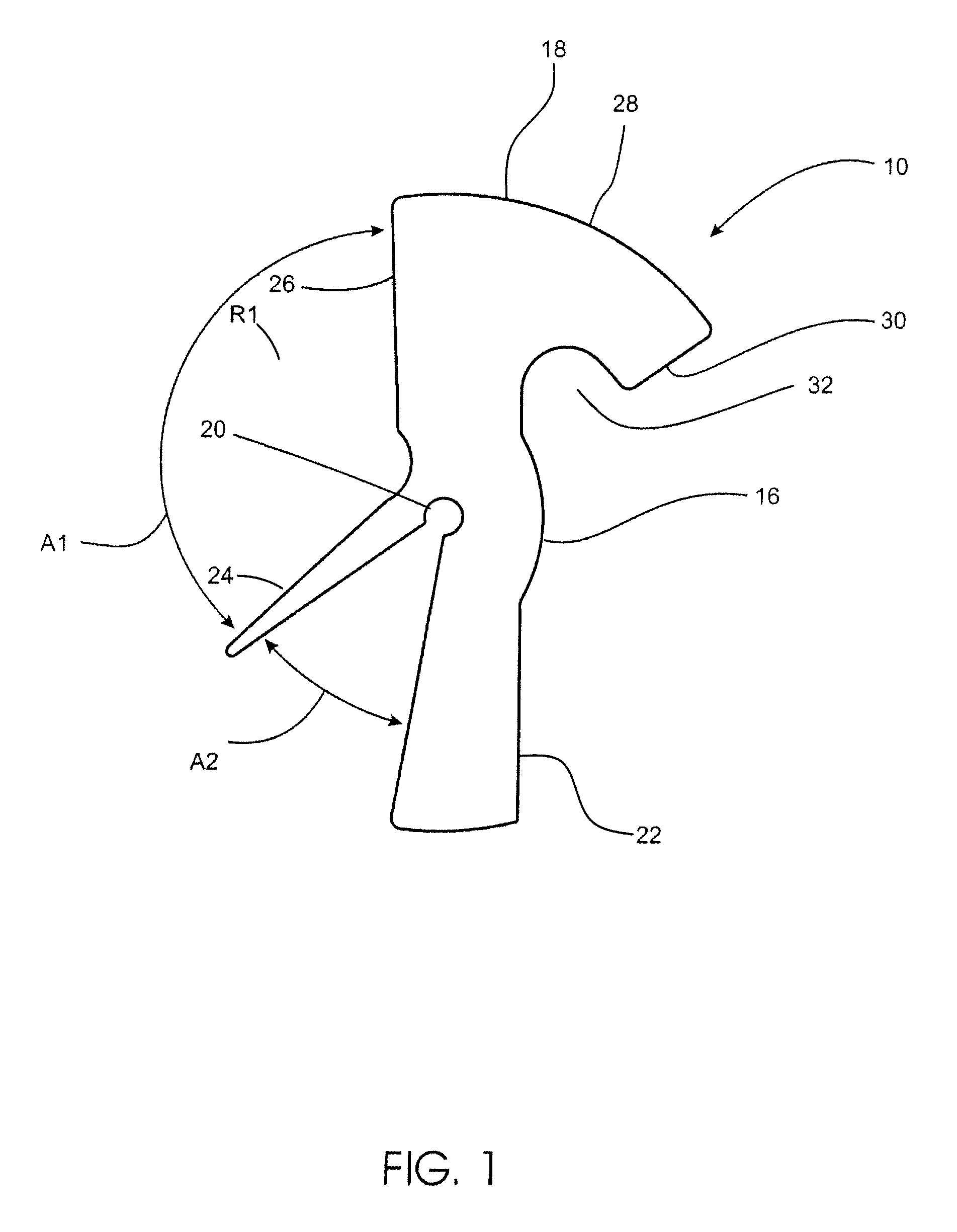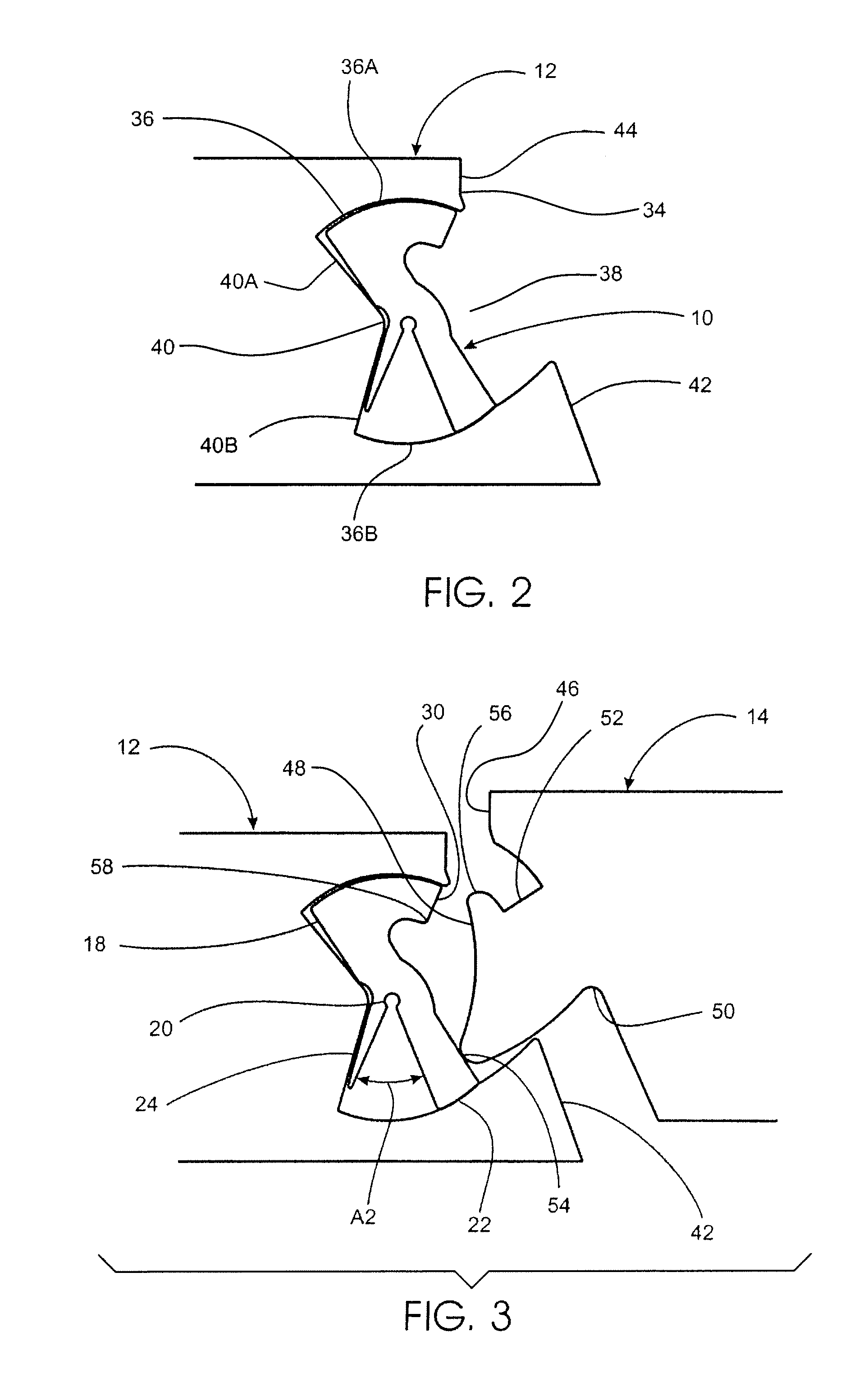Flooring system
a floor and system technology, applied in the direction of couplings, cables for vehicles/pulleys, building components, etc., can solve the problems of gap or space remaining, complicated grouting process, and difficult installation, and achieve reliable connection, convenient installation, and pleasant aesthetic appearance.
- Summary
- Abstract
- Description
- Claims
- Application Information
AI Technical Summary
Benefits of technology
Problems solved by technology
Method used
Image
Examples
third embodiment
[0063]the present invention is illustrated in FIGS. 5, 9, 10 and 27. In this embodiment, the rotatable locking member 200 (FIG. 27) is provided with a head 202 at the end of first arm 218 having a substantially convex shape. The rotatable locking member 200 includes a second arm 222 and a resilient arm 224 having shapes similar to second arm 18 and resilient arm 22 in FIGS. 1-4. As illustrated in FIGS. 9 and 10, as the second panel 214 enters the opening 238, the bottom edge 254 of tongue 248 pushes the second arm 222 of the rotatable locking member 200, causing the second arm 222 to rotate towards the resilient arm 224 and causing the first arm 218 to rotate towards the tongue 248 until it presses against the top edge 256 of the tongue 248. The tope edge 256 of the tongue 248 prevents the first arm 218 from rotating any further. Thus as the bottom edge 254 of tongue 248 presses against second arm 222, the second arm 222 bends under increasing force towards the resilient arm 224, wh...
fifth embodiment
[0091]the present invention is illustrated in FIGS. 19 and 20. In this embodiment, rather than an axial extension at the end of a slot member secured into a groove at the rear of a main groove in the first panel 417, this embodiment illustrates an insertion member 500 having a hooked shaped head 502, a second arm 504, a resilient arm 505 and a core aperture 506. What differentiates this embodiment from the previous embodiments is that the rotatable member 500 is secured in place through a protrusion 507 formed into and as part of the back wall of the groove 508. Because it is made from the core material of the first panel 517, this protrusion 507 acts as the axis of rotation around which the rotatable locking member 500 will rotate.
[0092]The operation of the joint is substantially similar to the embodiments heretofore discussed, with the insertion member moving from an open to a closed position as the panels are joined. In this embodiment, the resilient arm 505 engages the rear surf...
sixth embodiment
[0093]A sixth embodiment is illustrated in FIGS. 22 through 26, in which a insertion member having a rotatable portion provided a locking operation in which the rotatable member moves from a closed position, to a open position during locking, back to the closed position after locking. In a first aspect of this invention, illustrated in FIG. 22, insertion member 600 is provided with a rotatable member 602 having a convex head 604. The insertion member 600 has a main body 605 with an arcuate groove 606 formed on an upper surface 607. The insertion member 600 also has a slot insertion portion 603 substantially similar to the slot portion 402 illustrated in FIG. 13. The slot insertion portion 603 may have one or more teeth or flanges 608 that facilitate securing the slot insertion portion 603 into a corresponding slot at the rear of a groove. In addition, rotatable member 602 has a single arm 609 with a rounded or blunt tip 610 shaped and sized to correspond to the arcuate groove 606 fo...
PUM
 Login to View More
Login to View More Abstract
Description
Claims
Application Information
 Login to View More
Login to View More - R&D
- Intellectual Property
- Life Sciences
- Materials
- Tech Scout
- Unparalleled Data Quality
- Higher Quality Content
- 60% Fewer Hallucinations
Browse by: Latest US Patents, China's latest patents, Technical Efficacy Thesaurus, Application Domain, Technology Topic, Popular Technical Reports.
© 2025 PatSnap. All rights reserved.Legal|Privacy policy|Modern Slavery Act Transparency Statement|Sitemap|About US| Contact US: help@patsnap.com



